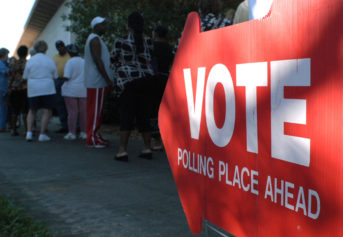While African Americans in the job market are accustomed to facing challenges, a new obstacle is emerging: In some areas, blacks are being overlooked and disqualified for jobs because they are not bilingual. In areas like Texas and Florida with large Spanish-speaking populations, bilingual workers are consistently preferred.
Hispanics are America’s largest minority group, making up about 16 percent of the nation’s population. As that margin continues to grow, the ability to speak Spanish as a second language is an undeniable advantage in the job market. This is true for any language, of course, as all facets of the business world become increasingly global. While some argue whether or not Spanish should become as acceptable as English in some regions, African Americans are largely left out of the conversation.
Doctoral research conducted at Louisiana State University by Katrina Watterson found that black students take fewer foreign language classes, and do not major or minor in foreign languages as often as their white counterparts. In addition, African-Americans do not participate in foreign exchange programs at the same rate as whites. There doesn’t seem to be any reason behind the trend, outside of pure disinterest for black students to involve themselves in foreign language studies.
According to statistics from Careerbuilder.com, bilingual employees are offered between 5 and 20 percent more per hour in wages. Bilingual skills can also open up higher level opportunities, both domestically and overseas, even for potential workers with thin resumes. In order to stay competitive in the job market, African Americans should be looking into learning new languages. If the rest of the world is ready to go global, African-Americans can’t afford to stay behind.


